I made the pilgrimage to the Metal For The Brain festival eight times. It was the Mecca of Australian heavy metal and no Aussie metal festival since has managed to capture the magic that happened every year in our wonderful nation’s capital. It was actually the only reason to go to Canberra, full stop. Metal For The Brain felt like one of the only places that us young metalheads truly belonged, surrounded by thousands of our brothers and sisters of all ages and from all over the country. Man it was f**king fun.
I was in my early twenties at the time I made the mission there so you can imagine carloads of us little sh*t bags making the trek up the Hume Highway in our shitty first cars with even shittier speakers, beers flowing like nobody’s business (except on the way out of Canberra after the show. The whole place shuts down at like 10am, its f**ked!).
The bands that played on the bill each year were as big as any international band in the eyes of us younglings – that kind of respect is something I think is severely lacking these days and hence why there will never EVER be another festival as killer as Metal For The Brain. There’s not much I miss about being that age to be honest, but I do miss this festival. For me it signaled the end of an era in the Aussie metal scene. And I’ll be honest and say it’s never really been as good since. Or maybe I’m just an old jaded bastard. Either way, M4TB ruled – if you were fortunate enough to go you don’t need me telling you this, especially if you stayed at the Carotel (if the cabin walls could talk in that place) and if you didn’t get to go, well, sucks to be you.
We caught up with Rod Holder, the drummer from the legendary Australian metal band Alchemist and one of the principal organisers of Metal For The Brain for a more in-depth look at what was a great era in Aussie rock history.
Metal For The Brain started back in 1991, and continued through to 2006. The first show was a benefit for brain injury charity, and also featured exclusively Australian artists. Why did you guys want to put the show together, how did the initial idea come about?
Rod: The festival wasn’t actually started by Alchemist, it was started by Armoured Angel, in particular Joel Green (drums/vox) because he had a friend who’s name was Alec Hurley. On Alec’s 19th birthday he went out to celebrate and he stepped in to break up a fight between a friend and somebody else. He got punched in the head and fell back and hit his head on the concrete and received severe and irreversible brain damage. He received very little compensation and basically his life was ruined. So Metal For The Brain got started by Joel who wanted to raise money for Alec and his family and the charity. After a couple of years Armoured Angel decided to call it quits and Joel asked myself and Adam if we would continue to run the festival. From the very first one that we did we were very ambitious and added extra stages and put a lot of time and energy into it. So that’s how it came about. We inherited it after Armoured Angel split up and I’m proud to say we took it to another level because we wanted it to get bigger and bigger, and every year you could just see it growing, which was a very cool thing!
Misery Live @ Metal For The Brain (1993)
Your band Alchemist was behind the show from that point forward … how did you guys meet and how long had you been playing together before MFTB started?
Rod: Adam started the band back in high school back in ’86 or ’87. They had a really big following around Canberra before I joined the band. Both Alchemist and Armoured Angel could pull 500 kids to a show (all going crazy) no worries. Someone introduced me to Adam at a party and he said they needed a new drummer and asked if I would I try out. I was pretty surprised because in my mind Alchemist were a big band. I got the gig and we released a demo in 1990 and after a couple more lineup changes the foundation was solid from 1992 and lasted about 20 years. So we’d been playing for about 3 years before Metal For The Brain started.
What was your goal when you threw the first festival, and what was the first one like?
Rod: The goal the whole time was to raise money for Alec Hurley. In the beginning we used to raise money for The Brain Injury Foundation but in the end we just ended up giving all the money to Alec’s family because it was very personal to us. We used to go see his mum and his mum would bring him to Metal For The Brain and we saw firsthand the devastating effect that the violence had on him. The first shows were great. We probably pulled around 500 people and it was just a good vibe from what I remember. They were good times.
Damaged Live @ Metal For The Brain, 1997
For kids just getting into metal now, what was the local scene like back then?
Rod: Things were a lot different, most notably there were far less bands because being in a band back then required much more effort. We had to really save our pennies just so we could record a demo that wouldn’t sound as good as something done on Garageband these days. It was a lot harder to get noticed and there was far less competition. There was really no Internet either so everything was a lot more Australian-based. We also didn’t have so many international bands touring so there was lot more support for the Australian scene because if you were into extreme metal you had to go and see Aussie bands. It was a lot more unified than it is now. There were also less musical genres!
Did anything ridiculous happen in the early years of Metal For The Brain?
Rod: I remember one year a guy a climbed all the way up on a balustrade which we had fenced off and I was watching him thinking that he was going to kill himself, but he ended up doing a backflip and landing on his feet to the cheers of the crowd below. That was pretty cool.
Psychrist Live @ Metal For The Brain, 1997
What were some of the funniest moments & most ridiculous moments?
Rod: Blood Duster would always pull something out. I remember once Fuller pretty much played a whole set completely nude on stage. There was plenty of ridiculous stage dives and climbing of speaker stacks, that kind of thing. And plenty of drunk people. It was kind a of drunken pilgrimage for a lot of people I think.
What was the feedback like from the metal community?
Rod: It was always really supportive. In fact, from the general community too. It was great publicity for Canberra to have thousands of metalheads from all over Australia make the pilgrimage each year and we were also raising money for charity so it was always a good promo story.
How hard is it making a metal festival work in Australia?
Rod: I think it’s changed a lot, we were pretty lucky I think and did Metal For The Brain in a bit of a golden era. There’s too many promoters now, too many bands. Ive done a festival since Metal For The Brain called Bastardfest a few years back which was pretty successful but in the end a disagreement between some partners involved put an end to it. You really need an undying passion for it because it can be thankless and it takes a long time to build up your reputation and to prove that you are actually worth working with.
Did you raise a lot of money for the charity? What were the challenges in keeping Metal For The Brain afloat?
Rod: Absolutely. It was very successful. Particularly in the early days when we had less expenses. All the bands would play for free and we would give every cent to the charity. Towards the end and one of the main reasons we wound the festival up it was actually getting too expensive to stage the show and we felt it just wasn’t growing organically like it was in the first 10 years. So for the last one we decided we would make it the biggest and the best, which we can proudly say we did. We made money every year for the charity, but we had to stop because it just became too much of a risk for us personally. If we were going to do it again we would definitely have a different business model, because every year we would give all the money to the charity and never have any money to stage the next year’s festival. We were putting up all of our own money to do it and if it failed we would have been ruined.
Would you ever consider bringing it back? How would you do things differently now?
Rod: We’ve thought about that long and hard and we’ve been made some pretty good offers to do that, but I don’t think so. Back in the day when we had Alchemist and Metal For The Brain going that was pretty much my whole life but now we all have other things in our lives that unfortunately get in the way and those things just aren’t our priority any more. And I just don’t think it would work these days, the unity and all that stuff that made M4TB work just wouldn’t translate to a festival being put on these days. Plus, I’m a 45 year old dude, how can I necessarily to relate to what a 16 year old kid is into. I teach kids music business at college and I think what they are listening to is crap and they think what I’m listening to is crap!
Written by: Dan McDougall and Christina Rowatt, with thanks to Rod of Alchemist for the interview.

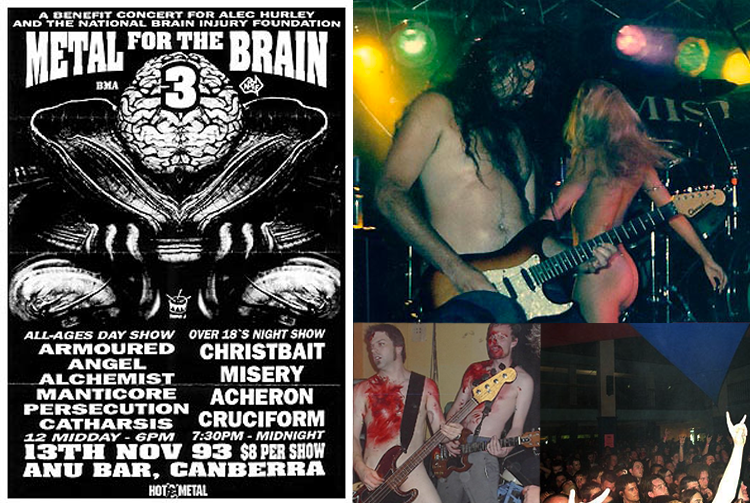
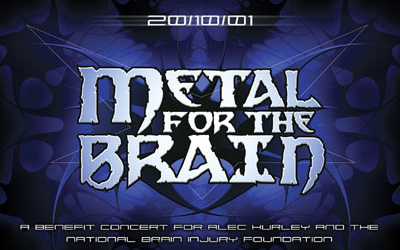

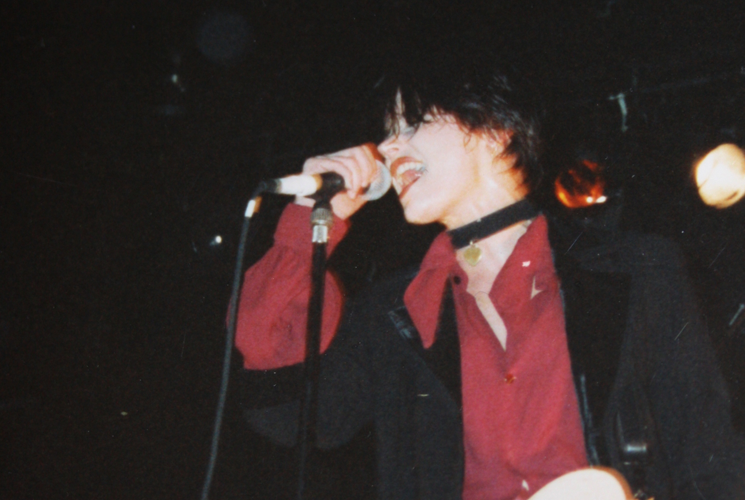
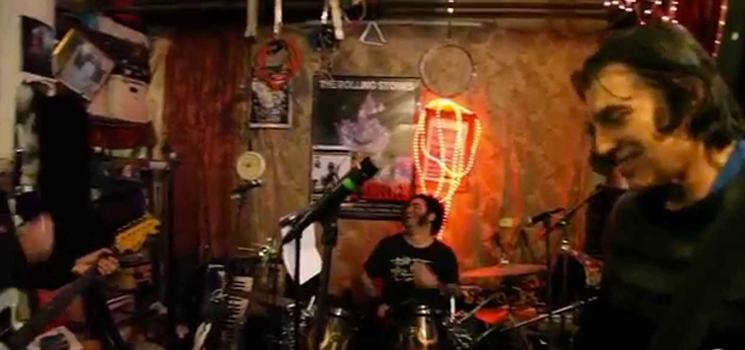
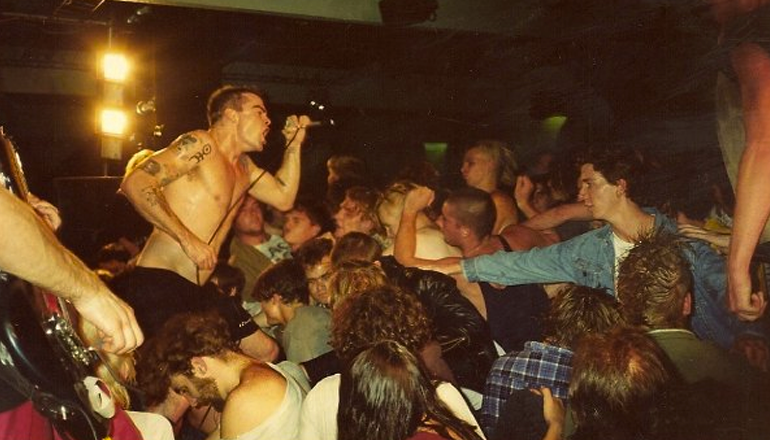
No Comments